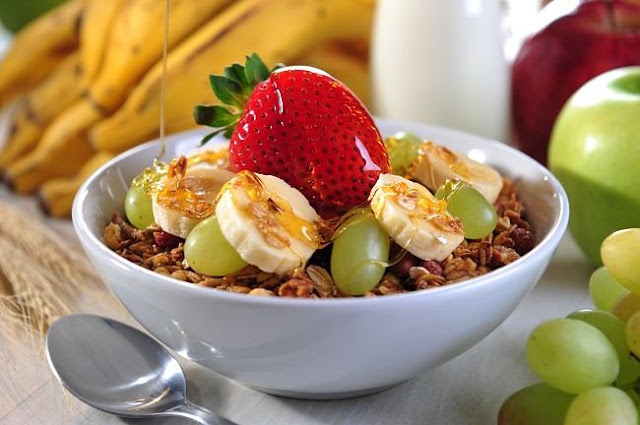Maintain Ideal Body Weight with Low Calorie Foods
Low calorie foods are good for maintaining weight. Each food contains calories needed for the body. However, if the number of calories in is more than the number of calories used, it can result in weight gain. If you don't want to gain weight, it's a good idea to eat low-calorie foods.
Low-calorie foods are useful for balancing between the number of calories that enter and the number of calories your body needs, but still provides a feeling of fullness.
Some Types of Low-Calorie Foods
The following are some good low-calorie foods consumed to maintain your weight.Vegetables and fruits
It is common knowledge that fruits and vegetables are two types of foods that are healthy and certainly good for the body. Vegetables contain an average of less than 100 calories per serving. For example, broccoli, cucumber, carrots, asparagus, cauliflower, celery, tomatoes, and cabbage.
Whereas fruits that have a low calorie content, namely watermelons, strawberries, blueberries, grapes, raisins, grapefruit, lemons, and lime.
For snacks, eating a cup (about 175 grams) of wine is healthier than raisins, because the calories in a cup of wine are equivalent to a quarter cup of raisins. In addition, eating wine will make you feel fuller than eating raisins.
Nuts and seeds
In addition to vegetables and fruit, nuts and seeds also include low-calorie foods. For example, a handful of almonds (about 10-15 almonds) only contains about 80 calories, besides consuming 10 pistachio nuts only gives about 40 calories. If you're hungry between meals, you can eat very low-calorie popcorn, as long as you don't add butter or sugar. Three and a half cups of popcorn only contains 100 calories.
Fish
Fish is also included in low-calorie foods. In addition, the omega-3 content found in fish contains many health benefits, including to reduce inflammation and improve heart health. Some types of fish that are low in calories are salmon (116 calories per 100 grams), cod (82 calories per 100 grams), tuna, and tuna. Make sure the fish consumed, processed in a healthy way too, namely sauteed with a little oil or steamed. Avoid frying fish.




Comments
Post a Comment